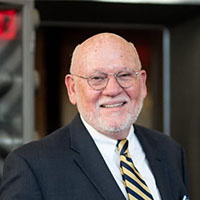Botsford Felony Lawyer, Connecticut
Sponsored Law Firm
-
 x
x

Click For More Info:
-
Maya Murphy, P.C.
266 Post Road E Westport, CT 06880» view mapDivorce & Family Law Representing Excellence
At Maya Murphy, PC, our attorneys strive to provide large firm service, experience, and ability, with small firm communication, attention, and accountability.
203-221-3100
Not enough matches for Botsford Felony lawyer.
Below are all Botsford Criminal lawyers.
James J Ruane
Motor Vehicle, Criminal, Consumer Rights, Business
James J. Ruane is a practicing lawyer in the state of Connecticut.
James O Ruane
Motor Vehicle, DUI-DWI, Criminal
Jay Ruane is a practicing lawyer in the state of Connecticut.
John T. Walkley
Military & Veterans Appeals, Federal Trial Practice, Family Law, Criminal
Status: In Good Standing
Daniel Francis Schopick
Landlord-Tenant, Family Law, Divorce & Family Law, Felony
Status: In Good Standing
Adam David Schlein
Real Estate, Employment, Felony, Contract, Slip & Fall Accident
Status: In Good Standing
Suzanne Kathleen Guidera
Real Estate Other, Estate Planning, Divorce, Juvenile Law, DUI-DWI
Status: In Good Standing Licensed: 25 Years
Tara C Dugo
Federal Appellate Practice, Family Law, White Collar Crime, Criminal
Status: In Good Standing Licensed: 13 Years
 Joseph C. Maya Westport, CT
Joseph C. Maya Westport, CT Practice AreasExpertise
Practice AreasExpertise


